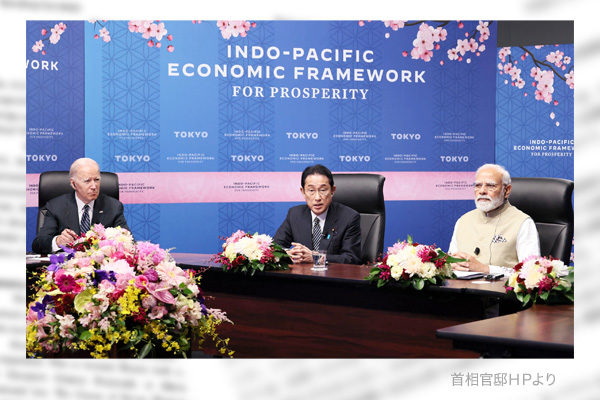The international economic order is now facing an age of division due to Western countries’ confrontation with China and Russia. Economic sanctions against Russia have brought about solidarity among the Group of Seven (G7) industrial democracies and deviations of emerging and developing countries from the West. How should a new international economic order be developed in such situation? I would like to refer to history in considering the matter. The creation of the Wassenaar Arrangement for export controls soon after the end of the Cold War and the creation of the Asia-Pacific Economic Cooperation (APEC) in the late 1980s, and their later developments may serve as a useful reference. I would like to showcase the two international frameworks, in whose creation I was involved.
Importance of Japan-U.S.-Europe solidarity
Japan, the United States and Europe have imposed the largest ever high-tech embargo jointly on Russia. The U.S. has described the achievement as a global export control coalition and indicated its development into a new framework beyond Russia sanctions.
The Coordinating Committee on Multilateral Export Controls (COCOM) applied to the communist world during the Cold War was transformed after the Cold War into the Wassenaar Arrangement to prevent the proliferation of weapons. A key objective for the transformation was Russia’s participation in the arrangement. Now that nearly 30 years have passed since then, participants in the arrangement have increased, making it difficult to form consensus among them. The arrangement is now required to be reformed into a new export control regime in accordance with geopolitical changes. Japan, the U.S. and Europe as technology countries that share values must create s regime with China and Russia in mind.
The Japan-U.S. joint leaders’ statement in May called for bilateral cooperation in controlling semiconductor and cyber surveillance system exports. It was the first time that export controls were cited in a Japan-U.S. summit statement. Japan’s latest Basic Policy on Economic and Fiscal Management and Reform can be also appreciated as clarifying a plan to create a new Japan-U.S.-Europe framework for export controls. These documents mark a historic turning point of creating a new economic order to symbolize the end of the post-Cold War era.
Drawing Asia into a new framework
Now that emerging and developing countries have deviated from Western democracies, how to draw these countries into a new economic order is significant. While the U.S.-led Indo-Pacific Economic Framework (IPEF) is important in this sense, the APEC forum can serve as a useful reference. Given the European economic integration and the movement to create a North American Free Trade Agreement in the second half of the 1980s, it was then imperative for Japan to warn against the creation of economic blocs. As the Ministry of Foreign Affairs opposed an APEC framework proposal by the then Ministry of International Trade and Industry within the Japanese government, MITI had no choice but to urge Australia to make the proposal.
The APEC framework was similar to the IPEF as it was designed for the United States’ involvement in Asia, emphasizing cooperation with a goal of “open regional cooperation” and Southeast Asian countries’ participation. The APEC was launched with 12 initial members including six core members of the Association of Southeast Asian Nations (ASEAN). China and Russia later joined the framework, boosting the number of APEC members to 21. It is now divided, failing to adopt joint statements. The APEC is precisely required to be reformed into a new framework.
As the U.S. has reduced its centripetal force, the influence of the left wing in the Democratic Party becoming a matter of concern, Japan is now required to play a key role.
As international economic frameworks have become dysfunctional, a new structure is necessary. Based on a dual standpoint as a G7 member and an Asian country, Japan is facing a big task to do.
Masahiko Hosokawa is a professor at Meisei University and a former director-general of the Trade Control Department at Japan’s Ministry of Economy, Trade and Industry. He is also a Planning Committee member at the Japan Institute for National Fundamentals.


